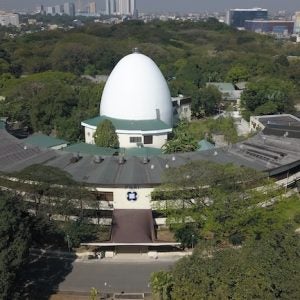Ukraine told the International Atomic Energy Agency (IAEA) on 19 May that new wildfires in the area near the Chornobyl Nuclear Power Plant (NPP) did not pose a radioactive threat to people, Director General Rafael Mariano Grossi said. Ukraine said the gamma dose rate levels in the vicinity of the Chernobyl NPP were “not exceeding the reference levels”.
Grossi said that, based on previous experience, such fires could lead to a very small increase of radioactive concentration in the air. He said the Agency agreed with Ukraine’s assessment that it would not constitute a danger to human health. Spontaneous fires often occur in the area, still contaminated by radioactive material from the 1986 accident, this time of the year.
In March, when the plant was still occupied by Russian forces, Ukraine also informed the IAEA about wildfires in the Chernobyl Exclusion Zone that were not expected to cause any significant radiological concern. The Exclusion Zone was established around the Chernobyl NPP after the accident 36 years ago.
Ukraine also informed the IAEA that there had been no significant developments related to nuclear safety and security over the past 24 hours. Regarding the country’s 15 operational reactors at four NPPs, Ukraine said eight are currently connected to the grid, including two at the Zaporozhye NPP, three at the Rovno, two at South Ukraine, and one at the Khmelnitsky. The seven other reactors are shut down for regular maintenance or held in reserve. Safety systems remain operational at the four NPPs, and they also continue to have off-site power available, Ukraine said.
In relation to safeguards, IAEA headquarters is receiving remote safeguards data from the Chernobyl NPP as well as from the four operational plants in Ukraine. This follows the recent full re-establishment of such transmission from Chernobyl.
Meanwhile, the European Bank for Reconstruction and Development [EBRD] has called for support after Russia’s occupation of the Chernobyl site. EBRD said the damage will cost at least €100 million to repair. Russian forces occupied the site between 24 February and 31 March. EBRD, which has been at the forefront of remediation work at Chernobyl since the 1986 accident, is now asking international donors for funds to help with the repairs.






